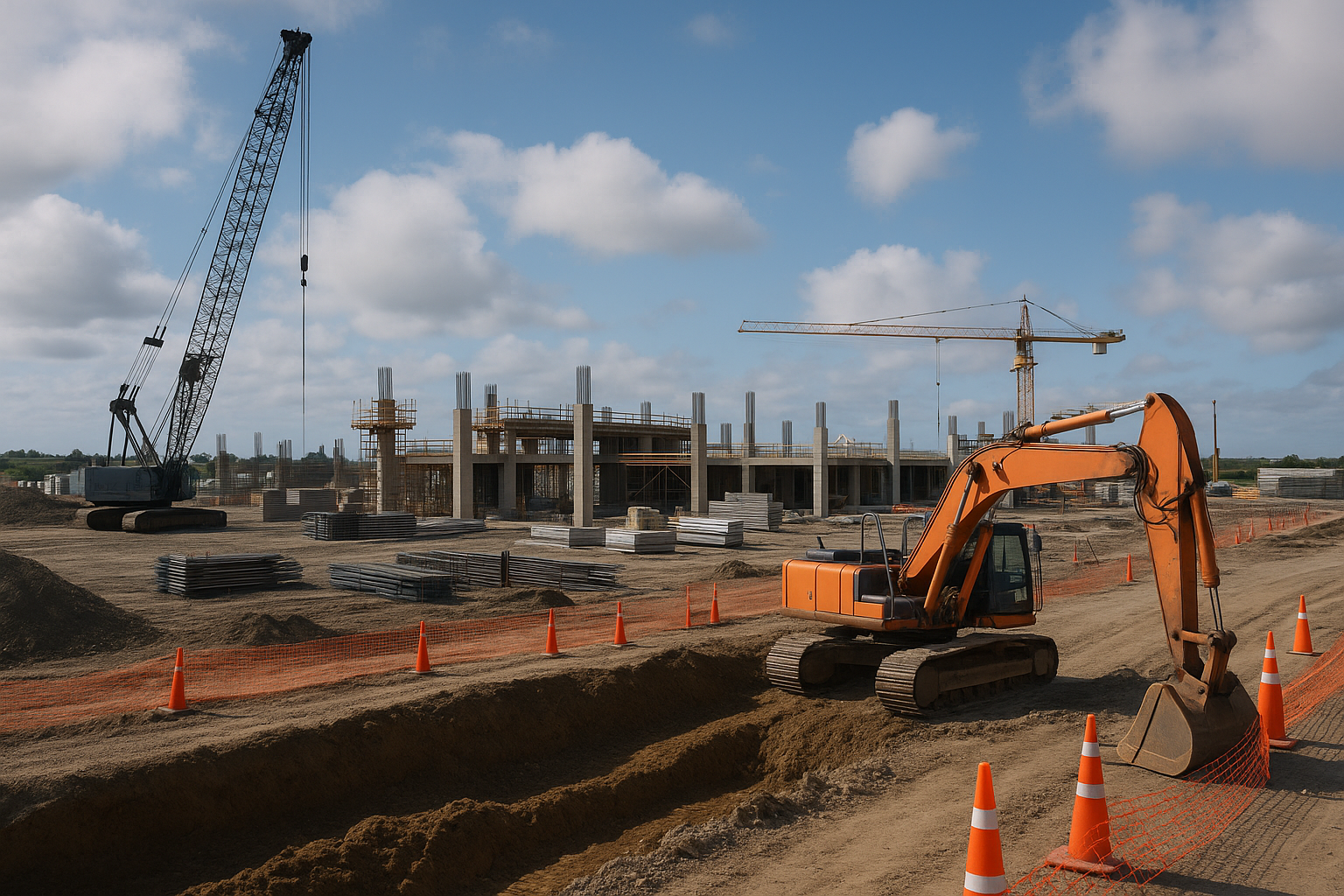Major Boost for Construction: 90,000 Overseas Products Approved for NZ Market
The approval follows recent changes to the Building Act, designed to streamline regulations, reduce costs, and improve access to high-quality materials.

- Country:
- New Zealand
In a significant move to strengthen New Zealand’s building supply chain, the Government has officially approved the first tranche of over 90,000 overseas building products for use in the country. The approval follows recent changes to the Building Act, designed to streamline regulations, reduce costs, and improve access to high-quality materials.
Building and Construction Minister Chris Penk announced the development, saying the decision marks a “practical step in cutting red tape” and expanding the range of building products available to New Zealanders.
WaterMark Certification Now Recognised in New Zealand
At the heart of the reform is the recognition of Australia’s WaterMark certification scheme, a well-established regulatory framework ensuring plumbing and water-related products meet stringent quality and safety standards.
“The reputable certification scheme WaterMark, which guarantees plumbing products are suitable for use in Australia, has now been recognised as an endorsed standard in New Zealand,” Penk explained.
This change means tens of thousands of new tapware, water service, sanitary drainage, and stormwater products—already widely used across Australia—are now automatically eligible for use in New Zealand projects.
Easing Pressure on Supply Chains and Costs
The move is expected to have far-reaching economic benefits for the construction sector. According to Penk, greater access to overseas-certified materials will help tackle long-standing issues such as product shortages, inflated prices, and regulatory delays.
“Increasing access to building materials will boost competition and put downward pressure on costs while also strengthening supply chain resilience,” he said. “Builders will no longer be left short of essential products during periods of high demand or disruption.”
During the pandemic and subsequent years of global supply strain, New Zealand’s construction industry faced severe shortages of key products—such as plasterboard and plumbing materials—leading to project delays and cost blowouts. The new policy aims to ensure such vulnerabilities are not repeated.
Streamlined Building Consents and Regulatory Certainty
Previously, New Zealand builders and designers had to individually prove that foreign products met local Building Code requirements before using them—a time-consuming and often expensive process.
Under the new system, Building Consent Authorities (BCAs) are now required to automatically accept any products recognised under approved international certification schemes, such as WaterMark, as compliant with New Zealand’s Building Code.
“This provides certainty across the system,” Penk said. “Products already certified under an approved overseas scheme can now be used here without unnecessary delay or red tape.”
Expansion to 200,000 Products Expected
The WaterMark approval is only the beginning. The Ministry of Business, Innovation and Employment (MBIE) will continue to review and endorse additional WaterMark-certified products over the coming months, potentially expanding the approved list to more than 200,000 items by the end of the year.
In addition, Penk confirmed he has approved the endorsement of 11 further international standards, broadening the scope of recognised overseas products beyond plumbing and water systems.
“These recognitions will benefit building owners, designers, and builders by giving them greater confidence when specifying or using products that may be unfamiliar in New Zealand,” Penk said.
Cutting Red Tape and Encouraging Innovation
The Government’s reforms are part of a wider effort to modernise New Zealand’s building regulatory system, reduce unnecessary costs, and promote innovation.
By aligning product standards more closely with trusted international schemes, the move aims to foster a more dynamic, competitive, and efficient building sector—while maintaining New Zealand’s high safety and quality benchmarks.
“I am pleased to see one of the practical steps the Government has taken to cut red tape in the building system and reduce unnecessary costs come into effect,” Penk said. “Recognising more overseas building products will give Kiwis greater choice, making it easier and more affordable to build the homes and buildings our communities need.”
A Step Toward a More Resilient and Affordable Building Future
With construction costs having risen sharply in recent years, the approval of WaterMark and other international certifications represents a crucial step toward stabilising the market.
Industry leaders have welcomed the change, noting that easier access to overseas products could help reduce bottlenecks and improve affordability for homeowners and developers alike.
The reform underscores the Government’s commitment to building a resilient, competitive, and future-ready construction sector—one capable of meeting the country’s housing and infrastructure demands with greater flexibility and lower costs.









